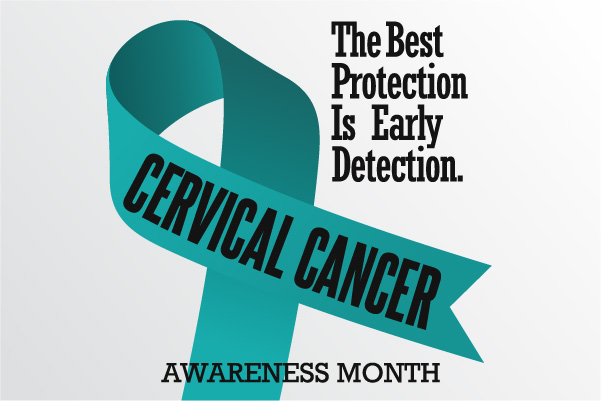MADURAI: Cervical Cancer Prevention Week is being observed from 17th to 23rd January 2022 with an aim to prevent and eradicate it through creating larger awareness among women. According to the World Health Organisation (WHO), cervical cancer is the fourth most common cancer in women and hence the understanding of risk factors, symptoms, screening test etc become important. So, in order to the spread the awareness message, the faculty members of PSG College of Nursing in Coimbatore had given a simple message with 5Ws and 1H explaining about what and how of cervical cancer prevention.
The faculty team who gave this important message on 17th January 2022 include Principal and faculty from the Department of Community Health Nursing of PSG College of Nursing, Coimbatore. They include Principal Dr.A.Jayasudha and faculty members Mrs.J.Poornima Mary, Mrs.P.M.Rajeswari, Mrs.P.Vikashini and Mrs.K.Vedavalli. “If you understand the 5 Ws and 1H, you will know all about cervical cancer and its prevention,” the awareness paper released by them says.
Cervical cancer is the uncontrolled growth of abnormal cells in the lining of the cervix. The cervix is a narrow part of the lower uterus, often referred to as the neck of the womb. This cancer can affect the deeper tissues of the cervix and may spread to other parts of the body. According to WHO, cervical cancer is the fourth most common cancer in women.
Cervical cancer is caused by infection with Human Papilloma Virus (HPV) whihc is preventable with a vaccine. The risk factors are: becoming sexually active at a young age (especially younger than 18 years old), having more sexual partners, a weakened immune system, smoking, having multiple full term pregnancies and a diet low in fruits and vegetables.
The symptoms of cervical cancer are: painful sex, unusual vaginal bleeding such as after sex / between periods, after menopause or after a pelvic test and an unusual vaginal discharge. After it has spread, the cancer can cause pelvic pain, trouble peeing, swollen legs, kidney failure, weight loss and also loss of appetite besides fatigue.
There are screening tests done- Pap Smear Test to detect abnormal cells in the cervix including cancer cells, HPV DNA test. The preventive measures are HPV vaccine that protect against common cancer-causing types. (HPV vaccines can be given starting at age of 9 years till 26 years). Safe sex, early cervical screening are of paramount importance.
Testing for HPV infection in women aged 30 to 49 years followed the examination of the cervix for pre-cancers permits local treatment and is an opportunity to prevent cervical cancer. The World Health Organization has a strategy target for cervix cancer prevention- that 90 per cent of girls should be fully vaccinated with HPV by the age of 15 yrs. And, 70 per cent of women need to be screened with a high performance test by 35 years of age and again by 45 years of age. hat 90 per cent of women identified with cervical cancer disease should receive treatment- get treated with surgery, radiation, chemotherapy or a combination of the three, palliative care.
The faculty members of Department of Community Health Nursing, PSG College of Nursing in Coimbatore have given a call saying that “Let us get ready and motivate everyone to screen for cervical cancer at the earliest. That is the best prevention measure.”






